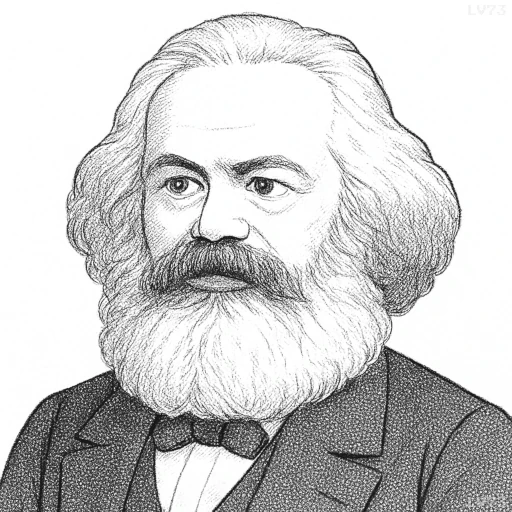“If anything is certain, it is that I myself am not a Marxist.”

- May 5, 1818 – March 14, 1883
- Born in the Kingdom of Prussia (Germany)
- Philosopher, economist, political thinker
table of contents
Quote
“If anything is certain, it is that I myself am not a Marxist.”
Explanation
In this quote, Engels (though sometimes attributed to Marx himself) is expressing his disagreement with certain interpretations of Marxism that he believed misrepresented Marx’s original ideas or took them to an extreme. This statement is significant because it illustrates that, while Engels was one of Marx’s closest allies and helped develop Marxist theory, he did not agree with all the ways in which Marx’s ideas were being interpreted and applied. Engels’s remark points to the fact that Marxism is not a static or dogmatic doctrine, but rather a living theory that must evolve and adapt to changing circumstances. Engels may have been responding to specific factions or thinkers who adhered rigidly to a narrow, simplified interpretation of Marx’s ideas, without considering the full complexity of his theories or their application in different historical contexts.
Historically, this quote reveals the divergence of views within the early Marxist movement. After Marx’s death, there were various interpretations of Marxism that led to disagreements about its practical application, particularly as socialist movements spread across Europe and the world. Some of these interpretations became more doctrinaire, focusing on rigid, oversimplified versions of Marx’s ideas, while others embraced a more flexible, dynamic approach to revolutionary strategy and class struggle. Engels’s statement reflects his desire to ensure that Marxism remained rooted in its materialist foundations, emphasizing the need for historical analysis, contextual adaptation, and practical application rather than adherence to fixed formulas.
In modern contexts, this quote is often invoked to highlight the internal debates and diverse schools of thought within Marxist theory and socialist movements. It serves as a reminder that Marxism is not a rigid ideology but rather a framework for analyzing history, class relations, and social change. The evolution of Marxist thought continues today in various forms, from Marxist-Leninism to Western Marxism and democratic socialism, showing that Marxism, like all political theories, must be applied thoughtfully and in line with contemporary conditions. Engels’s comment reminds us that even within the Marxist tradition, there is room for critical reflection and theoretical development.
Would you like to share your impressions or related stories about this quote in the comments section?
